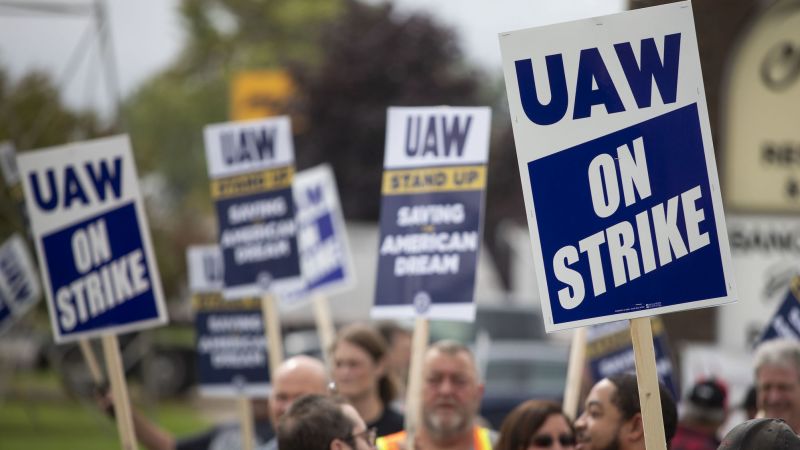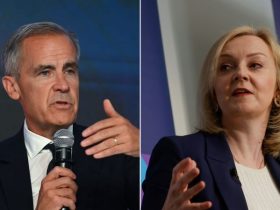General Motors and the United Auto Workers union have come to a tentative agreement, according to a source familiar with the negotiations, just two days after the union expanded the strike at America’s largest automaker.
Neither the union nor GM would confirm the tentative deal. But this could bring an end to the union’s unprecedented strike against all three of the nation’s unionized automakers.
Terms of the deal are not yet known, but it is expected to be along the lines of the deals already announced at Ford and Stellantis, including an immediate 11% raise in the top hourly wage rate, additional pay hikes totaling another 14% during the four-and-a-half years of the contract, as well as a return of the cost-of-living adjustment meant to protect workers from rising prices.
The union went on strike against all three automakers on September 15, nearly seven weeks ago, making this the longest US auto strike in 25 years. It started with a strike at one assembly plant at each company, but it expanded the scope of the strike six times since then in an effort to step up pressure on the companies at the bargaining table.
The union announced its first deal, with Ford, this past Wednesday, and then announced a deal with Stellantis on Saturday night. But it failed to reach a deal with GM at that time, despite indications the two were close to a deal. Instead it expanded the strike to a fourth assembly plant, this one in Spring Hill Tennessee, as nearly 4,000 UAW members joined the strike at that time.
All three tentative deals will need to be ratified by rank-and-file members before they take effect. And it is possible that members at one or more companies could vote down the tentative deal, leading to a resumption of the strike at that company.
There are a total of more than 18,000 UAW members at GM now on strike, though they could be returning to work within days. The 16,600 strikers at Ford have already returned to work, and more than 14,000 Stellantis strikers are in the process of returning to work.
The strike had a total of nearly 50,000 UAW members on strike at one point or another, although not all at the same time. It cost GM $200 million in the last two weeks of September, and another $600 million in the first three weeks of October. The costs per week have likely increased since then, as the union added GM’s largest plant in Arlington, Texas, to the strike a week ago. That one portion of the strike likely cost GM about $130 million a week, according to an estimate from Well Fargo.
The strike has been particularly high profile in a period of intense activity by the nation’s labor unions. President Joe Biden became the first sitting president to join a picket line when he visited strikers outside a GM facility in Michigan last month.
Biden heralded the tentative agreement this morning, giving reporters a thumbs up as he boarded Air Force One in Delaware, and telling them “I think it’s great” when asked about the deal.
During the UAW strike, a coalition of unions at Kaiser Permanente had 75,000 workers walk out in the largest US health care strike in history. There are also 160,000 actors striking Hollywood studios and streaming services.
CNN’s Betsy Klein contributed to this report.
Read the full article here











Leave a Reply